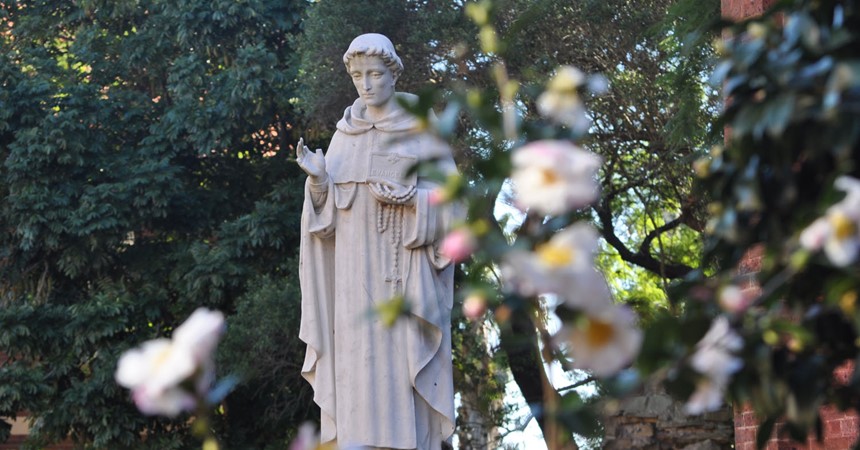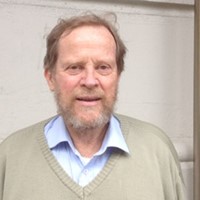Salamanca is a jewel of a city, sitting on the fertile plains of north western Spain. There in early September I attended a congress of the Order of Preachers (commonly known as the Dominicans) to which I belong. Two hundred of us, sisters and brothers from 50 different countries, came together for a Congress dealing with human rights. I can hear you thinking! Why go there? What’s so important? Because we were celebrating a part of our tradition which arose in Salamanca: looking back at a group of Dominicans who had made a difference within the sixteenth century Spanish Empire. We were there also to renew our commitment to this tradition, still very much alive in our day.
The first of this celebrated group was Bartolome de las Casas, a Spanish Dominican who was among the first to follow Columbus as his mercenaries conquered the Carribean, then Mexico and further south. Following his Dominican principles, las Casas, with a few others, saw that the Spaniards were stripping away the human rights and dignity of the local people: enslaving them, putting them to heavy work in silver mines while supposedly bringing the truths of Christianity to them. They died in the millions (yes, the millions!) from disease and ill-treatment. For the next 50 years, las Casas worked as their human rights advocate. He searched for the truth in complex situations and placed this before Kings Charles V and Philip II. He sought to change the Empire’s policies so as to gain justice for these peoples. Sometimes he succeeded, sometimes not. But the memory of las Casas’ efforts is never forgotten. As he himself put it, he had seen “Jesus Christ, our God, scourged, afflicted and crucified not once but millions of times” by his own people.
The second notable figure was Francisco de Vitoria, a leading professor of theology working in Salamanca. (Yes, that’s why we were there!) Vitoria listened carefully to what las Casas and his brothers were saying, and began to articulate new and stunning political ideas. He wrote a rudimentary code of ethics for nations like Spain, which was making its first contact with non-Christian nations – people in what is now the Dominican Republic, Cuba and Mexico. In a nutshell, he said such independent groups must be free to govern themselves, to possess their own land, unhindered by attacks from outside. These were rights given them by natural law. The Spanish King was not pleased by such political ideas. But subsequent events have upheld their value and truth. They have become the basis of global International Law. A bronze bust is kept to Vitoria’s memory at the United Nations building in New York, so influential were his thoughts. Las Casas, the man on the ground, and Vitoria, the academic, were two sides of the one coin, seeking and advocating for the truth of the situations they faced. Human dignity mattered as much then as it does today.
It was important therefore for us to engage with some contemporary Dominicans working for human rights today, and coming from very different parts of the world. The first was Father Emmanuel Ntakarutimana, a Dominican friar from Burundi. He is part of a group helping to negotiate a solution to the present crisis in his country caused by the desire of the President to extend his term in office beyond what is allowed by the Constitution. New tensions have arisen similar to those that caused the genocide in 1993. Emmanuel’s gifts as a mediator come into full play. With other like-minded people he is working to sustain the rights of his people and maintain a fragile peace. Another speaker was Madonna Gay Lumina Escio, a young lay Dominican human rights lawyer from the Philippines. While there are good laws set up to protect human rights specifically, there are also laws favouring the Filipino elites. It seems that these laws are more invoked when dealing with the setting up of very large mining operations, while those dealing with human rights are somehow under-utilised or conveniently forgotten − when rivers become polluted or indigenous people are summarily evicted from their land. To stand up for these and similar causes often led to torture and extra-judicial killing. Madonna had been involved with many such cases personally. It takes great courage for human rights advocates to continue the work of defending those struggling for their rights − to have the truth upheld in law and adequate redress given.
What about Australia? There are Dominican sisters in each state who are working with refugees and asylum seekers, seeking to uphold truth again in a difficult political climate. Those working in immigration detention centres like Villawood have helped people to be released into the community, have advocated for them within the detention system and provided companionship in situations which seem impossible to solve. Others have set up houses to give refugees a home; given English language classes to both men and women refugees, but especially to the women. The older Dominican sisters, especially, have been human rights advocates with groups such as Amnesty International through letter writing. Why do they do this? Because they are following the truth-seeking which was at the heart of Jesus’ life, and has been an integral part of Dominican life from its beginning.
I have focused here on truth-seeking in regard to human rights. I am grateful to have been strongly reminded of this golden thread through our Congress in Salamanca. That Dominicans all over the world, male and female, continue to push for these values in whatever way they can, is a sign that the Order of Preachers is alive and well.
To learn more of the Dominican presence in Australia, please visit the Dominican Sisters of Eastern Australia and the Solomon Islands and Dominican Province of the Assumption.























































































